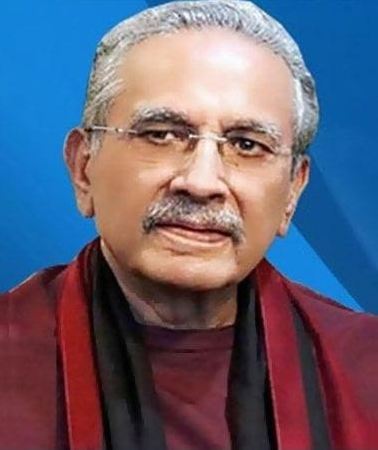ISLAMABAD, OCT 19 /DNA/ – Prominent business leader and former president of the Islamabad Chamber of Commerce and Industry (ICCI), Shahid Rashid Butt, has warned that Pakistan’s agriculture sector is deteriorating faster than the country’s population is growing, driven primarily by decades of government neglect rather than climate change alone.
Speaking to members of the business community, Butt painted a stark picture of the continuous decline in agriculture, which has triggered an economic and social crisis across rural areas, pushing thousands of farmers to abandon their lands and move to cities. “If this migration continues, the collapse of the farm sector will accelerate, threatening national food security and rural livelihoods,” he said, underlining the severity of the situation.
He noted that shrinking farm credit, declining yields, and repeated crop failures have made the situation critical. While recent floods, water shortages, and economic stagnation have aggravated the crisis, Butt argued that the roots of the problem lie in the state’s long-term neglect and short-sighted policies.
This crisis is not merely the result of climate change but of decades of indifference, weak institutional capacity, and lack of investment in modern agriculture, he added. According to Shahid Rasheed Butt, successive governments have failed to invest in modern farming technologies, crop insurance, and drought- and pest-resistant seeds. Instead, they have relied on short-term subsidy schemes that disproportionately benefit large landowners while leaving small farmers behind.
The lack of investment in modern farming technologies has led to low productivity and increased vulnerability to climatic shocks. Short-term fixes cannot rescue a collapsing sector, he said, stressing the need for structural reforms. These reforms would involve changes in policies, practices, and institutions to address the root causes of the crisis. He also emphasized the need for better access to finance and technology for smallholders.
He also criticized the absence of transparent market reforms and long-term planning, saying this policy vacuum has left Pakistan’s agriculture unproductive, vulnerable to climatic shocks, and dependent on imports.
The result, he warned, is growing rural poverty, with majority of rural households living below the poverty line, food inflation, increase in food prices over the past year, and widening inequality between rural and urban populations. Butt urged the government to move beyond statements and adopt a coherent rural development strategy that integrates climate resilience, financial inclusion, and market-based reforms.
Reviving agriculture is essential not just for farmers but for consumers and the overall economy, he said, adding that higher farm incomes and rural employment would help stabilize prices and reduce poverty.
Agriculture contributes nearly one-fifth of Pakistan’s GDP and employs over a third of its workforce, yet budgetary allocations and credit disbursements to the sector have stagnated over the past decade.

















